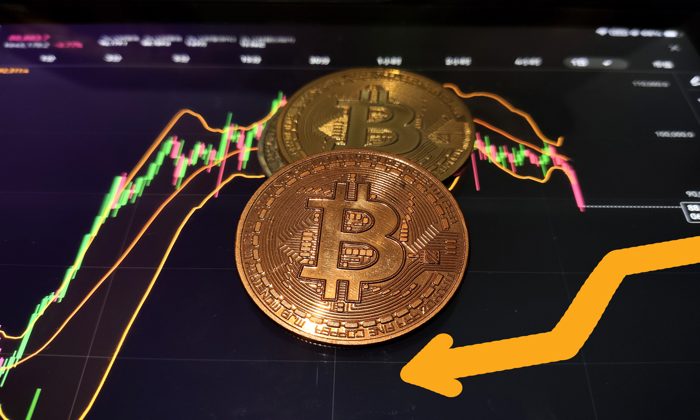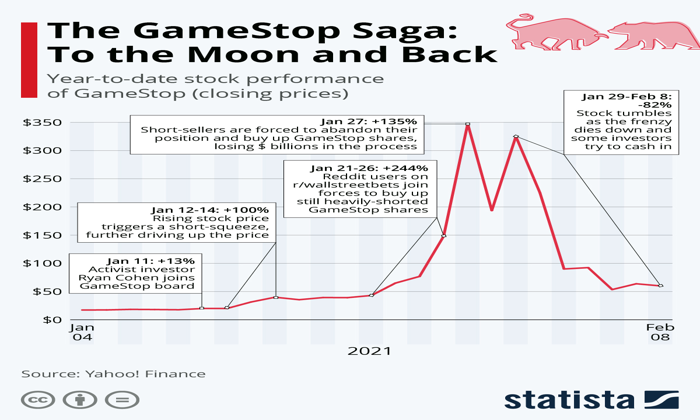Amidst the turmoil in global markets, more and more investors are now turning to gold safe-haven investment as a reliable financial sanctuary. According to a recent JP Morgan report, this shift is largely due to the impressive performance of gold, while cryptocurrencies like Bitcoin are witnessing a price decline, suggesting that the digital asset’s status as a safe haven might be overstated. As market volatility increases—fueled in part by geopolitical tensions and corporate uncertainty—investors prefer gold for its tangible value and stability, especially through vehicle investments such as gold ETFs. The contrasting trends in these two assets highlight a clear preference for traditional safe-haven investments, making gold a compelling choice for risk-averse investors. With Bitcoin struggling to maintain its footing, the ongoing Bitcoin vs gold analysis is likely to sway more investors towards gold, reinforcing its dominance in uncertain times.
In light of increasing market fluctuations and economic insecurities, many financial players are revisiting their investment strategies, particularly favoring precious metals over crypto alternatives. The concept of gold as a secure asset remains unmatched, with its historical resilience standing in stark contrast to the often volatile cryptocurrency landscape. As traditional and modern investors weigh their options, investments in gold ETFs are gaining traction, showcasing a preference for stability amidst unpredictable external factors. The recent performance of gold, alongside growing skepticism about Bitcoin’s reliability as a safe haven, has ignited discussions around the broader implications for both assets. As the battle for investor confidence continues, evaluating gold as a fortified investment option presents a clear narrative in the face of market adversity.
The Resurgence of Gold as a Safe-Haven Investment
In recent months, gold has established itself as the preeminent safe-haven investment, particularly in light of global economic uncertainties. Investors are increasingly turning to gold ETFs and futures as a hedge against market volatility. The JP Morgan report highlights that these investment vehicles are seeing heightened activity, as speculators recognize the metal’s reliability during tumultuous times. Gold’s recent price surge, reaching over $3,660, exemplifies its strong appeal among investors who prioritize stability in their portfolios.
The historical context of gold as a safe-haven asset further underscores its significance. Throughout previous economic downturns and crises, gold has consistently provided a measure of security and value preservation. This is particularly relevant today, as geopolitical tensions and concerns over a potential recession continue to loom. With Bitcoin losing its lustre as a safe-haven alternative, gold is reclaiming its throne, drawing in investors looking for a dependable asset amidst the chaos of the financial markets.
Comparing Gold and Bitcoin: Insights from the JP Morgan Report
The recent JP Morgan report offers a compelling analysis of the declining value proposition of Bitcoin in the context of safe-haven investments. Despite its initial branding as ‘digital gold’, Bitcoin’s correlation with traditional markets, particularly technology stocks, has muddied its once-clear narrative as a hedge against economic instability. Analysts indicate that while Bitcoin has experienced impressive growth since its inception in 2009, its recent performance has fallen short of expectations, especially when compared to gold’s resilience during market fluctuations.
Investors are now prioritizing gold ETFs investment over cryptocurrency, as indicated in the JP Morgan analysis. With Bitcoin’s price decline of more than 20% from its January highs and ongoing market volatility, many are shifting their focus back to gold. This reflects a broader trend where traditional safe-haven assets are regaining their relevance, while Bitcoin is increasingly viewed as a high-risk investment susceptible to dramatic price swings.
The Impact of Bitcoin’s Performance on Market Sentiment
Recent performance data showcases a sharp contrast between gold and Bitcoin. As the Bitcoin price declines, market sentiment is shifting towards traditional assets. The JP Morgan report emphasizes that Bitcoin has not been able to capitalize on the safe-haven flows that have been firmly bolstering gold prices. With Bitcoin trading sideways around $84,000, it is clear that investor confidence in the cryptocurrency is waning, suggesting that the speculative interest in Bitcoin is not as solid as it once appeared.
Furthermore, the observed trends in investor behavior signal a preference for gold amid turbulent market conditions. Studies reveal a growing cohort of investors who prioritize stability and reliability in their portfolios, steering them towards gold investments rather than volatile assets like Bitcoin. The dip in Bitcoin ETF investments, following a brief surge in December, illustrates a pivot back to the security that gold provides, reinforcing its status as the ultimate safe-haven investment.
Gold ETFs vs. Bitcoin ETFs: A Shift in Investor Preference
The investment landscape is witnessing a significant shift as gold ETFs reclaim dominion over Bitcoin ETFs. According to recent data from VettaFi, American gold ETFs now manage nearly $150 billion in assets, overshadowing the $93 billion managed by the Bitcoin ETFs. This reversal is indicative of growing investor confidence in gold as a reliable safe-haven during periods of high volatility. The dynamics of the market have prompted many to reconsider their investment strategies, leading them back to gold.
Moreover, the temporary advantage that Bitcoin ETFs held last year has diminished, revealing the fickleness of investor sentiment when it comes to cryptocurrencies. With ongoing economic instability and geopolitical tensions, gold’s longstanding reputation as a store of value is reaffirming its place as the preferred investment choice. As investors seek to insulate themselves from market shocks, the attraction of gold ETFs remains compelling, leaving Bitcoin struggling to maintain relevance in this new financial climate.
Understanding the Geopolitical Factors Driving Gold’s Popularity
Geopolitical factors play a pivotal role in shaping investment choices, particularly when it comes to safe-haven assets. The current landscape, marked by President Trump’s aggressive tariffs and trade wars, has sent shockwaves throughout the market, prompting investors to flee towards gold. The JP Morgan report indicates that this trend is largely influenced by a desire for security in an unpredictable environment, highlighting the fundamental role that global events can have on investment patterns.
As the threat of recession looms, many are reassessing their portfolios and gravitating towards assets that can weather such storms. Gold’s inherent characteristics as a tangible and historically reliable commodity provide a sense of comfort to investors. In contrast, the volatility plaguing Bitcoin reinforces the precious metal’s appeal. The ongoing uncertainty and fear surrounding future economic conditions continue to position gold as the ultimate safe-haven asset amid geopolitical turmoil.
Analyzing the Future of Bitcoin in Light of Gold’s Dominance
As gold continues to excel as a safe-haven investment, Bitcoin’s future remains uncertain. The contrasting performances of these two assets present an intriguing analysis for investors. While Bitcoin proponents once lauded its potential as ‘digital gold’, the current market conditions depict a different narrative. The decline in Bitcoin’s price, compounded by its ineffectiveness in attracting safe-haven flows, raises questions about its long-term viability, especially as gold reasserts its dominance.
In the broader investment discourse, Bitcoin’s role is shifting from a revolutionary asset to one facing intense scrutiny in times of economic distress. Investors who once viewed Bitcoin as a hedge are now turning their attention back to gold, a well-established store of value. The changing tides in investor sentiment emphasize the importance of adapting to market conditions, highlighting that, as it stands, gold retains a superior status as the unequivocal safe-haven asset.
The Role of Economic Indicators in Gold Vs Bitcoin Investments
Economic indicators heavily influence investment decisions, particularly in the realm of safe-haven assets. The current climate, characterized by fluctuating markets and signs of potential recession, has galvanized interest in gold while placing Bitcoin’s viability in question. The JP Morgan report provides a comprehensive overview of how macroeconomic factors, such as inflation rates and employment data, can sway investor perception, reinforcing gold’s stature as a sanctuary during uncertain times.
As market indexes decline and uncertainty looms, gold’s historical performance in similar scenarios positions it as a safer bet compared to Bitcoin, which has shown increased volatility with bullish runs. Economic indicators are signaling a shift toward more traditional investments, and as Bitcoin continues to decouple from its safe-haven narrative, analysts believe that gold will solidify its standing in the portfolios of discerning investors. This pivot towards gold investments underscores the critical nature of understanding economic trends and their implications on asset performance.
Investing Strategies: Gold as the Safe-Haven Choice
For investors navigating market fluctuations, adopting a strategic approach that prioritizes safe-haven assets is crucial. As outlined in the JP Morgan report, gold presents an array of opportunities through various investment vehicles, including gold ETFs and physical gold purchases. These methods allow for diversification within an investment portfolio, providing a hedge against risks associated with more volatile assets like Bitcoin.
Moreover, integrating gold into an investment strategy offers several advantages, such as price stability and lower correlation with equities. This is particularly important during economic downturns or geopolitical tensions, where the demand for reliable assets spikes. In light of Bitcoin’s unpredictable nature, many investors are finding comfort in gold as their preferred safe-haven choice, reaffirming its longstanding legacy as a staple in investment strategies.
Market Predictions: The Future of Safe-Haven Investments
As market conditions evolve, predictions about safe-haven investments are paramount for both amateur and seasoned investors. Current trends indicate a sustained preference for gold as geopolitical tensions and economic uncertainties continue to mount. Analysts expect that gold will remain a focal point in investment strategies, overshadowing Bitcoin’s speculative allure, especially in times of heightened instability in traditional markets.
Looking ahead, it is likely that the narrative around safe-haven assets will evolve further, impacted by both domestic and global economic indicators. However, based on historical performance and current trends, gold is set to retain its stature as the ‘safe-haven king.’ While Bitcoin may have potential in certain speculative contexts, its inability to navigate economic turbulence places it at a disadvantage compared to the tried-and-true allure of gold.
Frequently Asked Questions
Why do investors prefer gold over Bitcoin during market volatility?
Investors often prefer gold over Bitcoin as a safe-haven investment during periods of market volatility due to gold’s historical stability and intrinsic value. A recent JP Morgan report highlights that amidst current fluctuations, gold exchange-traded funds (ETFs) are seeing increased investment activity, whereas Bitcoin’s safe-haven narrative has faltered.
How have gold ETFs become more popular than Bitcoin amid recent market changes?
Gold ETFs have gained popularity as a safe-haven investment, with investors funneling significant amounts into these funds. According to JP Morgan, the recent market volatility and geopolitical uncertainties have prompted many to seek the reliability of gold, pushing gold ETFs to reclaim peak assets under management, compared to Bitcoin ETFs, which have seen withdrawals.
What does the JP Morgan gold report say about Bitcoin vs gold analysis?
The JP Morgan gold report indicates that Bitcoin has not maintained its status as a safe-haven investment as effectively as gold. The analysis shows that while gold has benefited from increased inflows, characterized as safe-haven flows, Bitcoin lacks the same backing during periods of economic uncertainty, making gold a more favored choice among investors.
Is gold a better safe-haven investment than Bitcoin during economic downturns?
Yes, gold is often viewed as a better safe-haven investment compared to Bitcoin during economic downturns. Historical data shows that gold maintains its value when market conditions are volatile, whereas Bitcoin has shown correlations with equities and has not performed reliably as a safe haven, according to JP Morgan’s analysis.
What recent trends in gold and Bitcoin investments should investors be aware of?
Recent trends reveal a shift towards gold as a safe-haven investment, as outlined in the JP Morgan report. Investors are reallocating funds into gold ETFs amid growing concerns over market volatility and geopolitical risks, while Bitcoin’s price has dropped significantly, drawing attention to gold’s stability versus Bitcoin’s recent declines.
| Key Point | Details |
|---|---|
| JP Morgan Report | Investors prefer gold over Bitcoin for safe-haven purposes amid market volatility. |
| Gold’s Performance | Gold’s price recently peaked at over $3,660, showcasing strong investor interest. |
| Bitcoin’s Decline | Bitcoin’s value has dropped over 20% since reaching nearly $109,000 in January. |
| ETF Activity | Gold ETFs see significant investment while Bitcoin ETFs experience withdrawals. |
| Market Correlation | Bitcoin has become more correlated with tech stocks than gold. |
| Investor Behavior | Geopolitical uncertainty and economic concerns drive investments into gold. |
Summary
Gold safe-haven investment remains a preferred choice for many investors as they seek refuge amidst economic turmoil. Recent reports from JP Morgan highlight that gold is consistently prioritized over Bitcoin during periods of volatility. The continuing rise in gold prices and strong ETF activity suggests that investors are increasingly turning to this traditional asset for stability, especially given the ongoing uncertainties in the global market.
In today’s unpredictable financial climate, the gold safe-haven investment has emerged as a preferred choice for investors seeking stability amid market turbulence. Analysts from JP Morgan report that as the Bitcoin price declines, many investors are turning their focus back to gold, considering it a more reliable asset. Unlike Bitcoin, which has struggled to maintain its safe-haven status, gold’s resilience shines through, leading to a significant uptick in gold ETFs investment. Investors prefer gold not just for its historical role as a safe haven, but also due to its recent performance amidst geopolitical uncertainty and economic volatility. As confidence in Bitcoin wavers, the lasting allure of gold continues to solidify its status as the ultimate refuge for those looking to protect their wealth.
With the recent fluctuations in financial markets, many are seeking alternative investments that can withstand economic storms. The enduring appeal of precious metals, especially gold, has captured the interest of investors who are traditionally cautious, especially in uncertain times. As Bitcoin faces challenges that undermine its position as a safe-haven alternative, gold is reclaiming its role as the go-to asset for wealth preservation. The ongoing analysis of Bitcoin versus gold highlights a shift in investor sentiment, with rising interest in gold exchange-traded funds (ETFs) gaining traction. In this landscape, the transition from digital currencies to tangible assets like gold reflects the evolving strategies of investors seeking security and stability.















